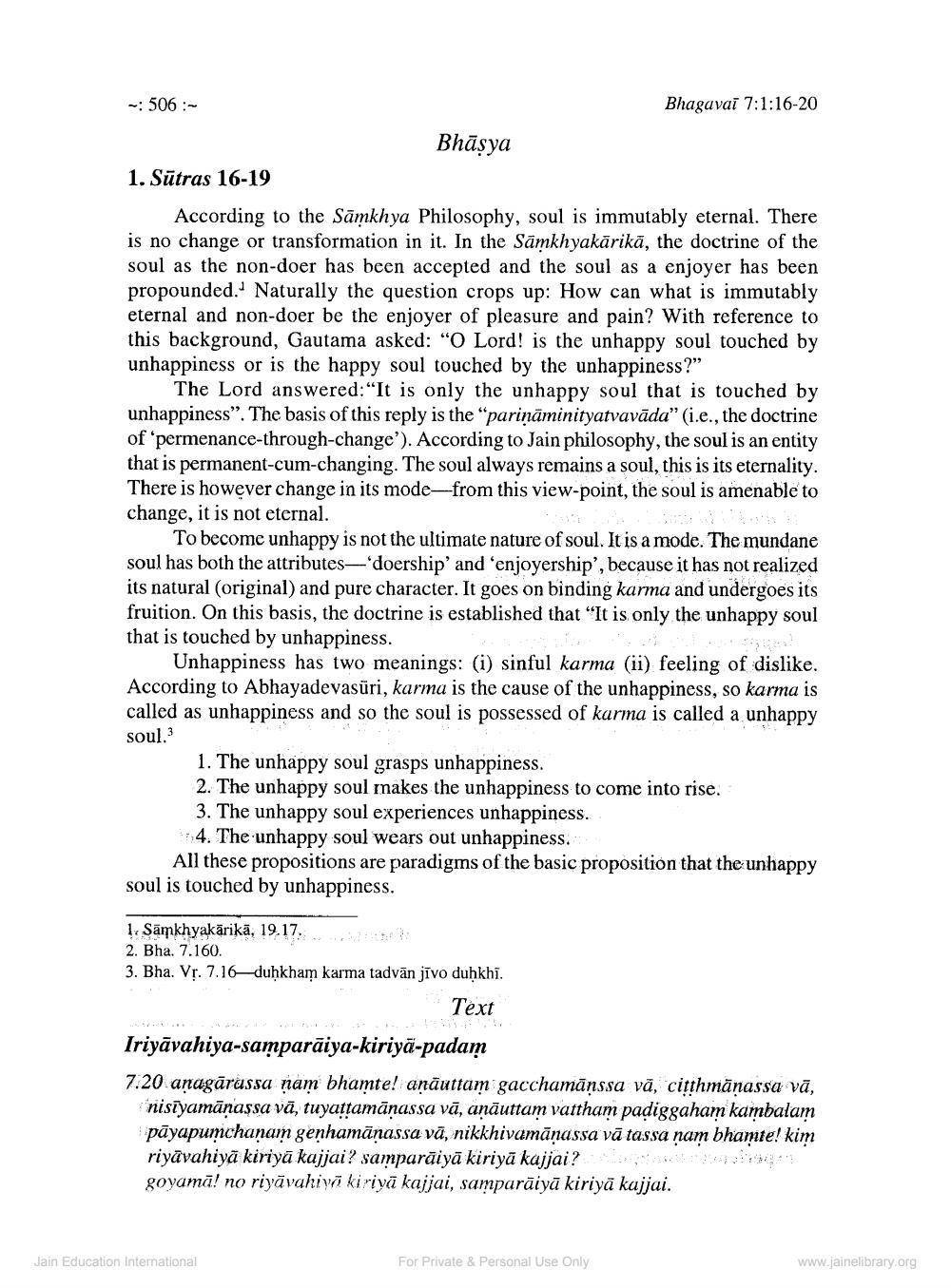________________
-: 506 -
Bhagavai 7:1:16-20
Bhāsya 1. Sūtras 16-19
According to the Sāmkhya Philosophy, soul is immutably eternal. There is no change or transformation in it. In the Sāmkhyakārikā, the doctrine of the soul as the non-doer has been accepted and the soul as a enjoyer has been propounded." Naturally the question crops up: How can what is immutably eternal and non-doer be the enjoyer of pleasure and pain? With reference to this background, Gautama asked: "O Lord! is the unhappy soul touched by unhappiness or is the happy soul touched by the unhappiness?"
The Lord answered: “It is only the unhappy soul that is touched by unhappiness”. The basis of this reply is the “pariņāminityatvavāda” (i.e., the doctrine of 'permenance-through-change'). According to Jain philosophy, the soul is an entity that is permanent-cum-changing. The soul always remains a soul, this is its eternality. There is however change in its mode—from this view-point, the soul is amenable to change, it is not eternal.
To become unhappy is not the ultimate nature of soul. It is a mode. The mundane soul has both the attributes-doership’ and enjoyership’, because it has not realized its natural (original) and pure character. It goes on binding karma and undergoes its fruition. On this basis, the doctrine is established that "It is only the unhappy soul that is touched by unhappiness.
Unhappiness has two meanings: (i) sinful karma (ii) feeling of dislike. According to Abhayadevasüri, karma is the cause of the unhappiness, so karma is called as unhappiness and so the soul is possessed of karma is called a unhappy
soul.3
1. The unhappy soul grasps unhappiness. 2. The unhappy soul makes the unhappiness to come into rise. 3. The unhappy soul experiences unhappiness.
4. The unhappy soul wears out unhappiness.
All these propositions are paradigms of the basic proposition that the unhappy soul is touched by unhappiness.
1. Samkhyakārikā, 19.17.. 2. Bha. 7.160. 3. Bha. VỊ. 7.16 duhkham karma tadvān jĩvo duhkhĩ.
Text
Iriyāvahiya-samparāiya-kiriyā-padam 7.20 anagarassa nam bhamte! anặuttam gacchamanssa vã, cithmãnassa vã,
nisiyamānassa vä, tuyattamānassa vā, anāuttam vattham padiggaham kambalam pāyapumchanam genhamānassa vā, nikkhivamānassa vā tassa nam bhamte! kim riyavahiya kiriyā kajjai? samparāiyā kiriyā kajjai? goyamā! no riyavahivä kiriyā kajjai, samparāiyā kiriyä kajjai.
Jain Education International
For Private & Personal Use Only
www.jainelibrary.org




